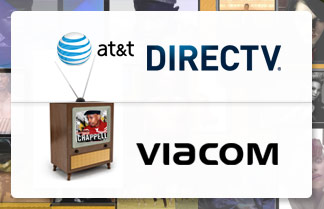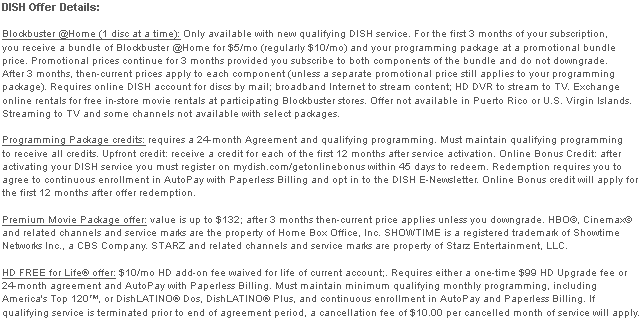 After a hotly contested licensing battle that dragged on for months, AT&T and Viacom networks finally reached an agreement in late March to avoid a programming blackout for DIRECTV subscribers. Putting various popular channels at stake (like Comedy Central, BET, Nickelodeon, MTV, etc), as most of the carriage disputes go, there was plenty of public contention in the weeks leading up to the March 22nd deadline. Both sides felt they needed to dramatically adjust costs and set a precedent with this deal. Let’s dig a bit deeper into the negotiations and the potential domino effect of the eventual contract.
After a hotly contested licensing battle that dragged on for months, AT&T and Viacom networks finally reached an agreement in late March to avoid a programming blackout for DIRECTV subscribers. Putting various popular channels at stake (like Comedy Central, BET, Nickelodeon, MTV, etc), as most of the carriage disputes go, there was plenty of public contention in the weeks leading up to the March 22nd deadline. Both sides felt they needed to dramatically adjust costs and set a precedent with this deal. Let’s dig a bit deeper into the negotiations and the potential domino effect of the eventual contract.
Like most good negotiations, both sides left a bit miffed
At the heart of the squabble were the carriage fees for Viacom’s mix of general-interest channels (check out Viacom’s networks). Over the past 5 years, basically every renegotiation for media licensing (where TV providers such as DIRECTV buy the rights to studio’s programming library) has resulted in an increase in costs…mostly due to inflation and a rise in costs to produce original programming. However, and while the exact terms of this AT&T and Viacom deal weren’t disclosed, the word on the telecom street is AT&T is paying less than the $1.3 Billion/year specified in the previous contract (yep, that’s Billion). This is pretty significant as it’s likely to set a benchmark for future licensing disputes. Services like DIRECTV constantly have to straddle the line between their costs to buy TV content and the prices they charge their subscriber base. Viacom is a mid-tier media company and while DIRECTV was likely willing to let a temporary blackout tighten the negotiating screws, they – almost – definitely weren’t ready to let those channels go dark for an extended period of times (subscribers tend to quickly look elsewhere when a number of their favorite channels suddenly get taken away).
Which side needed the deal more?
Hypothetically, would DIRECTV ever let a mid/large-tier media partner like Viacom pull all its channels from its line-up? Unlikely, but there were pundits out there that recommended AT&T save the $1.x Billion and investment in customer growth via other means (such as new tech, synergistic partnerships, etc). At the end of the day, the risk of subscriber loss on DIRECTV’s side would almost ensure a deal get done — however, if/when a media partner asks for a ridiculously large increase and just won’t budge, you may see the first big outage of channels. Of course, issues like these effect all TV providers, including streaming/OTT, so having massive negotiating leverage like AT&T has does help to keep the lights on and customers happy.
On Viacom’s side, their revenue hinges on selling their content. So, although they went on a high profile PR blitz before the March deadline (on The Daily Show with Trevor Noah, etc), they ultimately needed this agreement to keep sustainable revenue flowing.
Ok, that’s all kinda interesting, but how’s this immediately affect me?
Well, first and foremost, channels like Nickelodeon and Comedy Central aren’t leaving DIRECTV anytime soon and DTV’s channels aren’t getting stripped down (like you’re seeing with various other providers). Viacom and DIRECTV wont be renegotiating until years down the line. Second, since DIRECTV managed to get their carriage fees reduced, this deal is not going to trigger a trickle-down increase in monthly rates. Their pricing has remained relatively stable (and transparent) over the past few years and expect that to continue for the foreseeable future. You’ll still need to sign up for a two year contract, but that’s the trade-off for the dramatically reduced rates in year one of the contract.
So, small disaster averted… now back to our regularly scheduled programming :).

